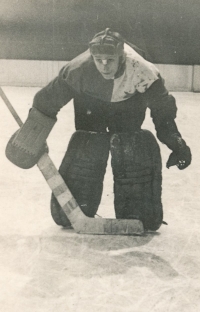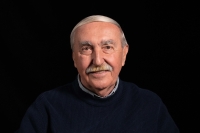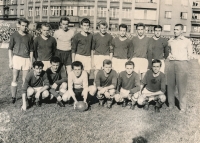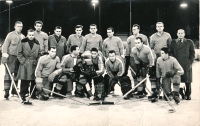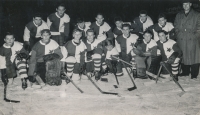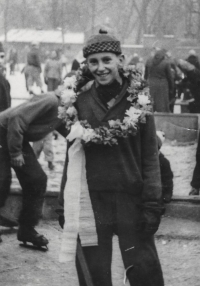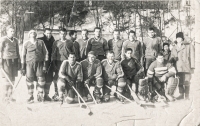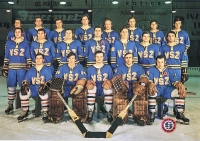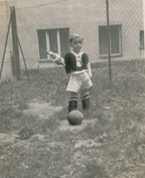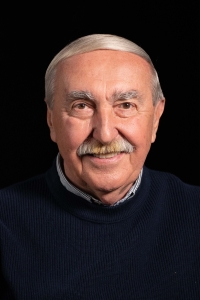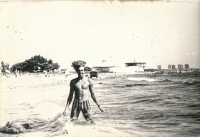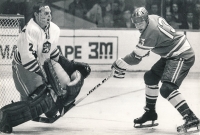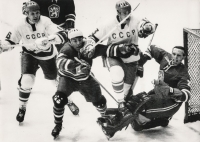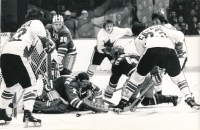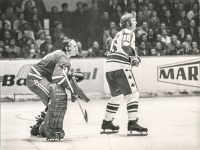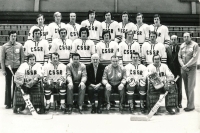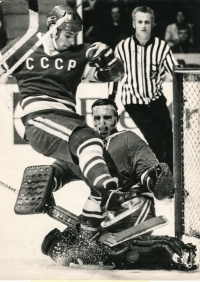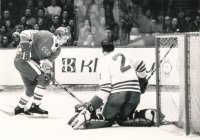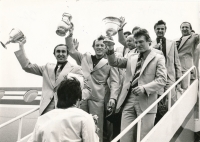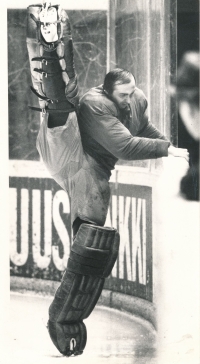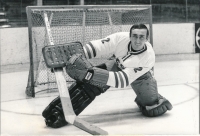I wanted to win against the Russians, crush them, destroy them...

Download image
Jiří Holeček was born on 18 March 1944 in Prague. He grew up with his family in a basement apartment of a Vinohrady tenement in rather poor circumstances. His father worked in the Czech Industrial Works, his mother was a housekeeper. Jiří Holeček had two brothers and played football and hockey from childhood. His dad was a coach in the Bohemians Prague youth team, where he played in the youth league until he was 19. At the same time he was a goalkeeper in Slavia Prague. After grammar school he trained as a TV and radio repairman, went to hotel school and graduated from the Faculty of Physical Education and Sport. In 1963, he went to the army to join Dukla Košice, with whom he was promoted to the Czechoslovak First League a year later. He married in Košice and with his wife raised a daughter and a son. In 1966 he represented Czechoslovakia at the World Championships in Ljubljana, where he won a silver medal. After the unsuccessful 1967 World Championships in Vienna, his coaches dropped him from the national team, where he returned for the 1971 World and European Championships in Switzerland. With the team there he became European champion and won silver at the World Championships. He was voted the best goalkeeper of the championship, that he accomplished four more times. He won the 1972 World Championship in Prague with the Czechoslovak national team. In 1973 he transferred from VSŽ Košice to Sparta Prague. In 1976 and 1977, he became a world ice hockey champion twice in a row. In 1976, he helped the national team advance to the final of the Canada Cup, where, for the first time in hockey history, the world’s best teams faced each other. After winning silver at the 1978 World Championship in Prague, he ended his international career. During his career, he also represented the Czech Republic at two Olympic Games - in Sapporo 1972 he won bronze, and in Innsbruck 1976 he won silver. He won a total of nine medals at the World Championships. He continued his club career for three seasons in the Federal Republic of Germany, where he worked in Munich and Essen. After returning to Czechoslovakia, he headed the hockey goalkeeping committee and took care of the education of young talents. As a professional advisor he worked for a hockey club in Japan. After 1989 he worked in advertising. In 2021 he lived in Prague.
